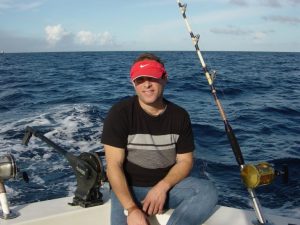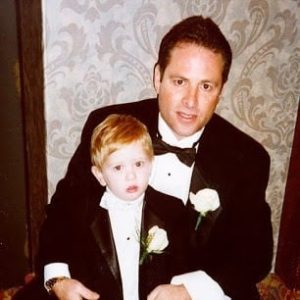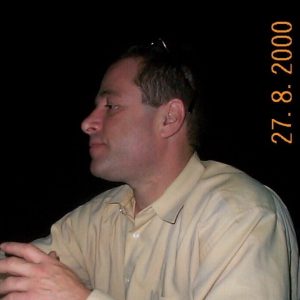Life in Fort Lauderdale and the Boiler Room.
The boiler room was unlike any place I’d ever worked in before—chaotic, intense, and overflowing with larger-than-life characters from all walks of life. Over 125 salesmen crammed into the same space, each one trying to outsell the others, battling for commissions like it was the last thing they’d ever do. The atmosphere was electric, and I immediately recognized the similarities to the pool hall back in Baldwin. There, like here, everyone was hustling, always trying to get the upper hand. This was just a different game, with higher stakes and even tougher competition.
For me, the high-pressure environment wasn’t intimidating—it was exhilarating. My years of experience, from running my own business to selling leads and precious metals, had sharpened my instincts. I knew how to work a sale, how to read people’s intentions over the phone, and most importantly, how to close a deal. It didn’t take long for me to rise to the top, establishing myself as one of the best brokers in the room. I sold precious metals—silver, gold, and platinum—to clients like a stockbroker would sell stocks. Every day was a grind, but it was also a game. And I knew how to win.
The hustle was relentless. Telemarketers around me were as aggressive as they come, and you had to be just as sharp or risk getting buried. But I thrived in that cutthroat environment. The energy of the room fueled me, and I quickly figured out how to maneuver through the chaos, using my skills to land the big sales. In a place like that, you had to have thick skin and a sharp mind, and luckily, I had both. The money was good. It was enough to support my wife and live comfortably, at least for the time being.
But the boiler room had its own dark side. Excess was the norm—parties, girls, gambling. It was easy to get caught up in it all. There was always something going on, whether it was a wild night out or a high-stakes poker game in some smoky back room. And in the office, when the phones weren’t ringing off the hook, we’d roll dice in the downtime, just like they do in Vegas. It was a reminder of the pool hall days, where the hustle and the games never seemed to end.
Despite the distractions, I managed to keep my focus. I wasn’t there to party or gamble away my hard-earned money. I was there to make a living, and that’s what I did. I had my priorities straight, and I wasn’t going to let anything get in the way of that. My wife and I were building a life together, and I knew that money was what would give us stability. As much as I enjoyed the rush of working in the boiler room, I always kept one eye on the bigger picture.
The boiler room was a wild ride, but I knew deep down that it wasn’t a place I could stay forever. It was thrilling while it lasted, but I needed more. I wanted to build something bigger, something that could last. This was just another chapter in my life, one that was full of lessons and experiences, but also one that would eventually come to an end.
For now, though, I was in it, living every day like it was a competition, knowing that the next big deal could be just one phone call away.
As time passed, the boiler room became like a second home to me, even with all its chaos. There was an undeniable thrill in being part of something so intense, where every phone call could either make or break your day. The stakes were always high, and that’s what kept everyone on edge. The constant competition wasn’t just about the money—it was about proving yourself every single day. No one wanted to be at the bottom of the board, and that’s what pushed me and everyone else to grind even harder.
I remember the rush when I’d close a big deal. It was like hitting a perfect shot in pool—a combination of skill, timing, and a little bit of luck. The clients on the other end of the phone didn’t know me, but I had a way of getting them to trust me. I’d paint a picture of financial security through precious metals, offering them a way to protect their assets. And often, they’d buy in. They didn’t know the reality of what it was like on my side of the phone, the sheer chaos that surrounded me as I made my pitch.
But with every high, there was a low. I’d see people around me burn out fast. Guys who’d come in full of energy, convinced they’d be the top broker in no time, only to crash after a few weeks or months when the pressure got to them. Some turned to gambling, others to alcohol or drugs. The parties that started as fun quickly spiraled into something darker for many of the people there. It was easy to lose yourself in that world if you didn’t have a strong sense of purpose. I saw good men fall into bad habits, their lives unraveling right in front of me.
For me, though, it was different. I stayed grounded, mostly because of my wife. She was my anchor, the reason I didn’t let myself get sucked into the darker side of the boiler room. I had responsibilities, and I wasn’t going to let anything jeopardize that. Sure, I enjoyed rolling dice with the guys and having a good time after a long day, but I always knew when to draw the line.
The money I was making gave us a comfortable life, but it wasn’t enough for me to settle. Deep down, I knew that the boiler room was just another step on my journey, not the destination. The work was exciting, but it wasn’t fulfilling in the way I wanted it to be. I had bigger dreams—dreams that extended far beyond selling precious metals over the phone. I wanted to build something of my own again, something that couldn’t be taken away with the swing of the market or the collapse of a company.
Still, I can’t deny the lessons I learned during those years. The boiler room taught me resilience. It taught me how to navigate high-stakes situations, how to keep my cool when everything around me was falling apart. I learned how to survive—and thrive—in an environment where only the strong lasted.
I’d see new guys come in, full of ambition, and I’d watch them make the same mistakes over and over—getting too comfortable too fast, or letting their success get to their heads. They’d start slacking off or get caught up in the distractions that were always lurking around. But I never made that mistake. I knew that in the boiler room, if you weren’t constantly hustling, you would fall behind.
There were moments when I considered what the next move might be. The thought of going back to running my own business crossed my mind more than once. I’d proven I could do it before, but this time I wanted something bigger, something that would allow me the kind of financial freedom I was after.
For now, though, I was biding my time, mastering the game in the boiler room, and saving up for the next big leap. Whatever that would be, I knew I’d be ready. But as much as I had a plan in the back of my mind, I couldn’t deny that part of me loved the rush of it all—the fast money, the thrill of the sale, the constant competition. It was addicting, and in a way, I wasn’t quite ready to let go of that yet.
This chapter of my life was far from over, but I knew it wouldn’t last forever. I just had to make sure I was ready for whatever came next.




